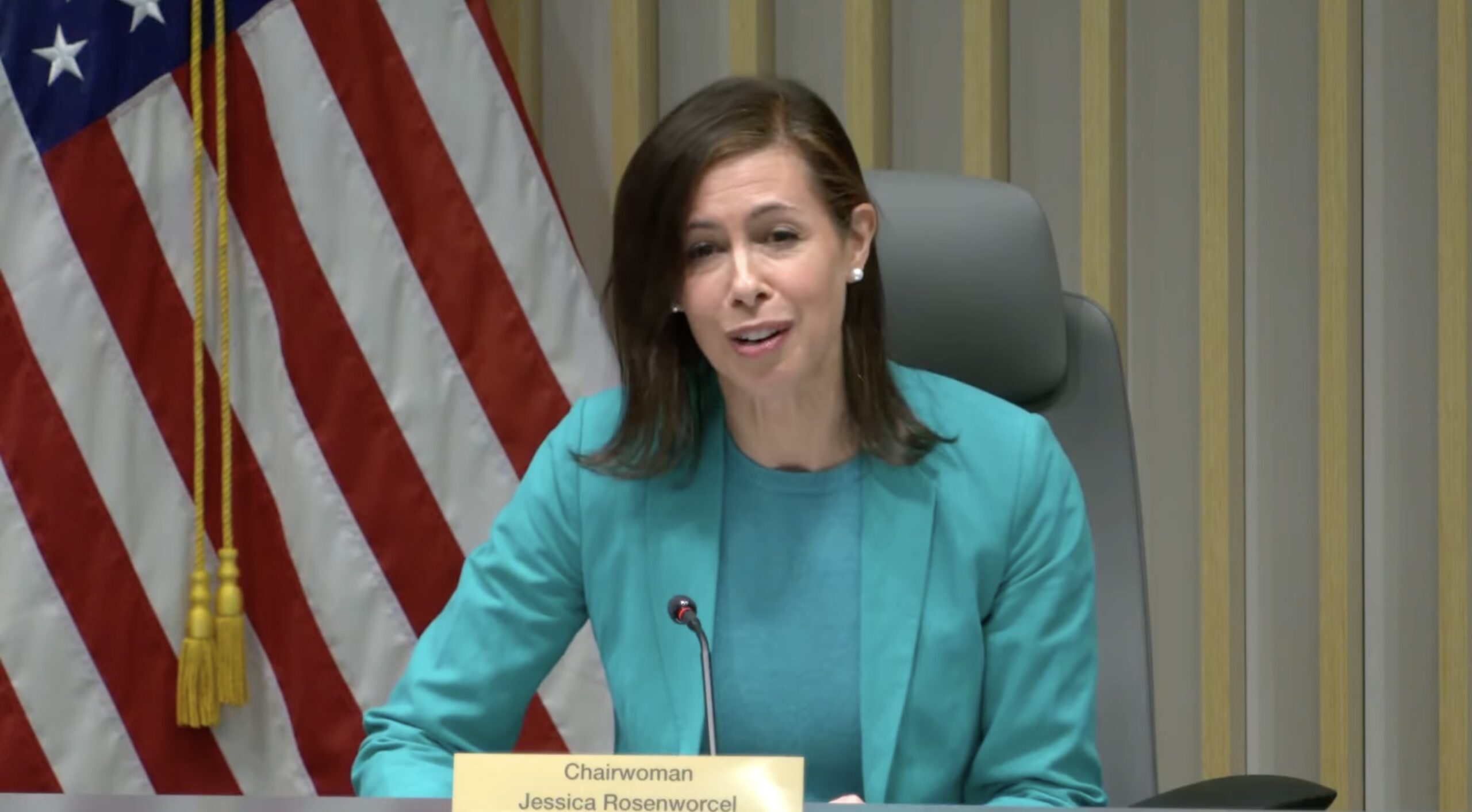TAMPA, Fla. — U.S. regulators have approved ground rules for allowing SpaceX and other satellite operators to use radio waves from terrestrial mobile partners to keep smartphone users connected outside cell tower coverage.
The Federal Communications Commission voted March 14 unanimously in favor of its Supplemental Coverage from Space (SCS) regulatory framework.
SCS providers would operate as a secondary service to companies providing Mobile Satellite Services (MSS) with conventional frequencies already approved for use from space.Â
This means an SCS operator would have to immediately cease operations if they interfere with an MSS provider or terrestrial telco with primary rights. The SCS regulatory framework also includes protections to guard against interference with astronomy.Â
The final version of the framework has yet to be released to the public, although it will be based on the draft the FCC published last month. The framework would go into effect after it is published in the Federal Register, which could take several weeks.
The FCC also voted to adopt a Notice of Proposed Rulemaking to consider a number of additional issues, including requiring 911 calls and texts to be routed to a public safety answering point by using location-based routing or an emergency call center. This rulemaking would be subject to a public comment period.
“We are the first country to adopt a framework that combines satellite and wireless service through supplemental coverage from space,†FCC chair Jessica Rosenworcel said, enabling these networks to accomplish more than they could do on their own.
“Together, they can end dead zones,†Rosenworcel said, and it “means that when disaster strikes and destroys ground-based systems, we’re going to have a backup in space.â€
Other countries are watching the United States closely to inform their own rules for allowing satellites to use spectrum from terrestrial partners to plug connectivity gaps nationwide, she added.
Low Earth orbit (LEO) constellation developer Lynk Global said the FCC’s approval will support the growth of what it estimates to be an addressable market worth more than $325 billion.
“This is a good news story that highlights America’s continued role in developing and delivering technology that makes a difference in the lives of people around the world,†Lynk Global CEO Charles Miller said.
Omnispace, which is looking to provide connectivity directly to devices using S-band spectrum already approved for MSS, said it is encouraged to see SCS classed as a secondary service to companies with a primary allocation like Omnispace.
However, Omnispace chief regulatory and international strategy officer Mindel De La Torre remains concerned about potential interference from SpaceX, which plans to use T-Mobile spectrum for direct-to-smartphone services in the United States.
Still early days
Apple’s latest iPhones have been using conventional MSS spectrum from Globalstar satellites to connect users outside cellular coverage in the United States and other countries since late 2022, limited to SOS services.
Other companies are developing constellations that would deliver higher bandwidth capabilities such as standard text messaging and, ultimately, voice and data services.
SpaceX aims to enable text services to phones already in circulation in the United States this year with T-Mobile, with voice and data services slated to come in 2025.
The company said Feb. 26 it made its first post on X (formerly Twitter) while testing Starlink broadband satellites in LEO with a direct-to-smartphone capability.Â
Lynk Global has been enabling intermittent texting from three satellites via partnerships with local telcos in parts of the Solomon Islands, Cook Islands, and Palau.
The company recently deployed two more satellites to improve coverage and capabilities, but remains far short of plans to deploy 5,000 of them in orbit for full global services.Â
In February, Lynk Global agreed to merge with a publicly traded shell company led by former professional baseball player Alex Rodriguez to raise money for the constellation.
AST SpaceMobile said in January it had raised $155 million from Google, AT&T, and Vodafone ahead of plans to deploy its first commercial LEO satellites early this year for a direct-to-smartphone service.
Meanwhile, Omnispace has told the FCC it plans to provide early direct-to-smartphone services with 300 of a proposed network of more than 600 LEO satellites in 2026.
Related
Read the original article here



